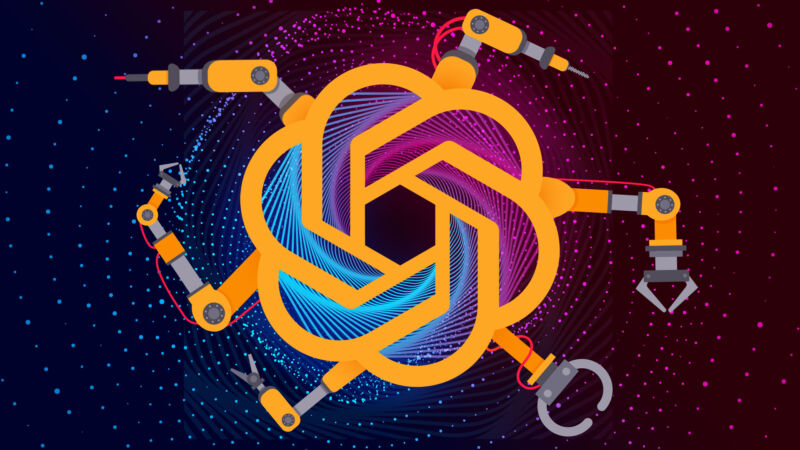High-tech drama —
The search.chatgpt.com URL is being set up, and Google employees are being poached.
Ron Amadeo – Updated

Aurich Lawson | Getty Images
OpenAI is eventually coming for the most popular website on the Internet: Google Search. A Reuters report claimed that the company behind ChatGPT is planning to launch a search engine as early as this Monday, but OpenAI denied that Monday would be the day.
The company recently confirmed it’s holding a livestream event on Monday, though, but an OpenAI rep told Ars that “Despite reports, we’re not launching a search product or GPT-5 on Monday.” Either way, Monday is an interesting time for an OpenAI livestream. That’s the day before Google’s biggest show of the year, Google I/O, where Google will primarily want to show off its AI prowess and convince people that it is not being left in the dust by OpenAI. Google seeing its biggest search competition in years and suddenly having to face down “OpenAI’s Google Killer” would have definitely cast a shadow over the show.
OpenAI has been inching toward a search engine for a while now. It has been working with Microsoft with a “Bing Chat” generative-AI search engine in Microsoft’s search engine. Earlier this week, The Verge reported that “OpenAI has been aggressively trying to poach Google employees” for an upstart search team. “Search.chatgpt.com” is already being set up on OpenAI’s server, so it’s all falling into place.
When the launch of OpenAI search does happen, one thing to really watch for is what types of search queries it can handle. Right now, ChatGPT can really only replace search queries that are questions. The primary reason Google Search is the No. 1 most visited website is not answers to questions; it’s because many people use Google as their gateway to the Internet. Here’s a list of the top Google queries; most of them are not questions, they are other websites. The No. 1 Google query is “youtube,” No. 2 is “facebook.” Also in the top 10 are “amazon,” “gmail,” “instagram,” and “whatsapp web,” and truly sad is No. 16, where people go to Google and search for “google” to get the homepage. That link is a top-100 list, and I don’t think I would categorize a single one as a “question.”
These navigational queries are the bread and butter of a search engine, not answers. If you want to make a purchase or reservation, view a map, download software, do research, watch a video, or read news, these are all things Google can help with that chatbots typically can’t. These types of navigational queries used to be the only thing Google could do—the obsession with answers only happened around 2012 when Google was 14 years old. Before then, it was all about the 10 blue links.
So, exactly how much of a threat OpenAI is to the big incumbent will depend on how much of Google it’s actually able to replace. One attempt at a chatbot search engine is Perplexity AI, where the primary text on the page shouts “Ask questions, trust the answers.” Again there’s that “answer” obsession, and that’s not how Google built its fortune. If you type “youtube” into Perplexity, it doesn’t show a link to YouTube; it shows a Wikipedia-style response.
Earlier this week, Bloomberg reported a few details on the forthcoming OpenAI search engine and said it would “allow users to ask ChatGPT a question and receive answers that use details from the web with citations to sources such as Wikipedia entries and blog posts” and that “one version of the product also uses images alongside written responses to questions.” That does not quite sound like a Google Killer and other than the source citation, it does not sound all that different from the ChatGPT of today.
The other issue is speed. Google became the gateway to the Internet by being really fast. Google is so proud of its speed that it actually displays the time it takes for a response to be generated, and it’s always fractions of a second. Generative AI, on the other hand is probably best measured in “words per minute,” like you’re judging a typist. When you just want to do something simple or go somewhere, sitting there for several seconds waiting for text to slowly appear word by word can be agonizing. My last Google Search took 0.41 seconds to “generate” a full page of text. How long will OpenAI’s search engine take?
This article was updated to reflect OpenAI’s denial of the search engine launch day reports.